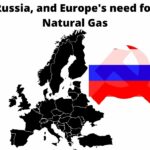Is the Peak Oil worry a bunch of fluff, and it won’t happen? Maybe it’ll be like the Y2K crisis that had a bunch of us worried in the late 1990’s, but never amounted to anything? A recent paper by researchers at Stanford U and UC Berkeley suggest Peak Oil won’t happen, and instead what’ll happen is Peak Demand as consumption patterns change.
What they studied is the “alternative possibility of reduced oil use due to improved efficiency and oil substitution.” That is, rather than have modern society disappear into Mad Max style chaos (the back-story of that series was a Peak Oil crisis), the researchers suggest we can technologyize our way out of the mess through increased efficiency and replacing fossil fuels with other sources.
Peak Oil == Peak of Production of Conventional Oil
What they’re focusing on is Peak Oil as defined by the Peak of Production of Conventional Oil. Namely, Conventional Oil refers to the stuff we normally think of as Crude Oil, the stuff that easily flows out of oil wells when drilled, etc. That source for fossil fuel has become increasingly hard to find over the past few decades, as witnessed by the herculean feats oil company engineers have undertaken to go further out to sea, or further into the arctic, to find fossil fuel resources.
What you see on this chart is a “peak of demand” for conventional oil, but I suspect that behind that peak of demand is simply the fact that the oil wells will run so low on conventional oil that the oil companies will be unable to extract more. The conventional oil is the maroon color and, according to these researchers, peaks shortly after 2030.
In order for the entire chart to continue showing increasing supplies of fuel, they have a wedge marked “Unconventional Liquids” which will, according to them, provide an ever-increasing supply of fossil fuel. This phrase refers to sources like tar sands or methane hydrates. Another source shown on the chart, NGL, refers to Natural Gas Liquids, which means the conversion of natural gas to liquid fuels.
All these sources are highly energy intensive to create liquid fuels from. Being energy intensive means they’re expensive processes, using today’s technology. One supposes the oil company engineers will develop technology to make these processes cheaper and less energy intensive. But another side effect from these sources is massive massive environmental destruction.
For example the Alberta Tar Sands is one of the largest sources of Unconventional Liquids, and extracting oil from that resource means strip mining vast swaths of land in order to scrape up the soil and boil it down to extract the oil embedded in the sand. It leaves behind massive massive ponds of highly toxic wastes.
Efficiency
The researchers also focused on transportation system efficiencies. They point to a current trend where passenger land travel is plateaued in industrialized countries, while economic growth is continuing. And even in developing countries there is a move to more efficient transportation than the individually driven car, for example the millions of electric scooters and electric bicycles being used in China.
This sort of trend is important because the majority of use for fossil oil is for transportation fuel. If the transportation system is more efficient, then less fossil oil is required per unit of economic activity and it would change the whole curve of consumption and resources.
This is good news if true. However I see a couple issues with the way its worded in their research.
First, is the activity called globalization. Much of the production of stuff is now occurring in the developing countries like China. It means that the “industrialized” countries no longer have to do as much transportation of stuff around their country, while still enjoying the same amount of stuff in the stores. Why? The transportation activities related to manufacturing stuff is now happening elsewhere, and not in the industrialized countries.
In other words, thanks to globalized manufacturing, the fossil fuel consumption that would have happened in the industrialized countries is now happening elsewhere.
Sources:
‘Peak Oil’ Concerns Should Ease, Experts Predict![]()
Oil substitution and the decline in conventional oil![]()
- Highway design could decrease death and injury risk, if “we” chose smarter designs - March 28, 2015
- GM really did trademark “range anxiety”, only later to abandon that mark - March 25, 2015
- US Government releases new regulations on hydraulic fracturing, that some call “toothless” - March 20, 2015
- Tesla Motors magic pill to solve range anxiety doesn’t quite instill range confidence - March 19, 2015
- Update on Galena IL oil train – 21 cars involved, which were the supposedly safer CP1232 design - March 7, 2015
- Another oil bomb train – why are they shipping crude oil by train? – Symptoms of fossil fuel addiction - March 6, 2015
- Chevron relinquishes fracking in Romania, as part of broader pull-out from Eastern European fracking operations - February 22, 2015
- Answer anti- electric car articles with truth and pride – truth outshines all distortions - February 19, 2015
- Apple taking big risk on developing a car? Please, Apple, don’t go there! - February 16, 2015
- Toyota, Nissan, Honda working on Japanese fuel cell infrastructure for Japanese government - February 12, 2015














